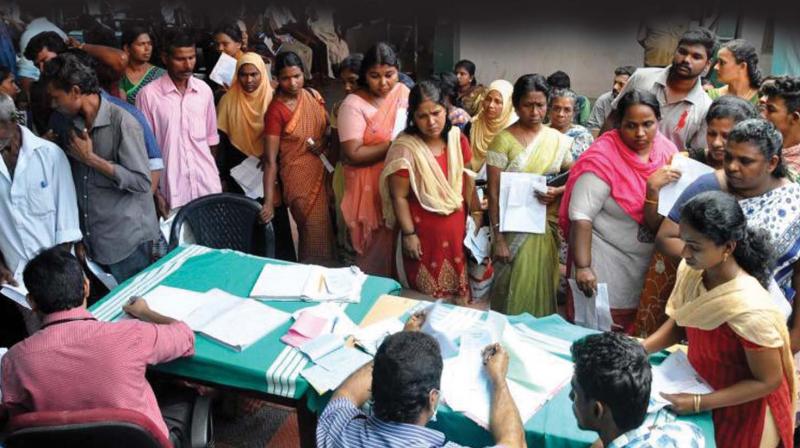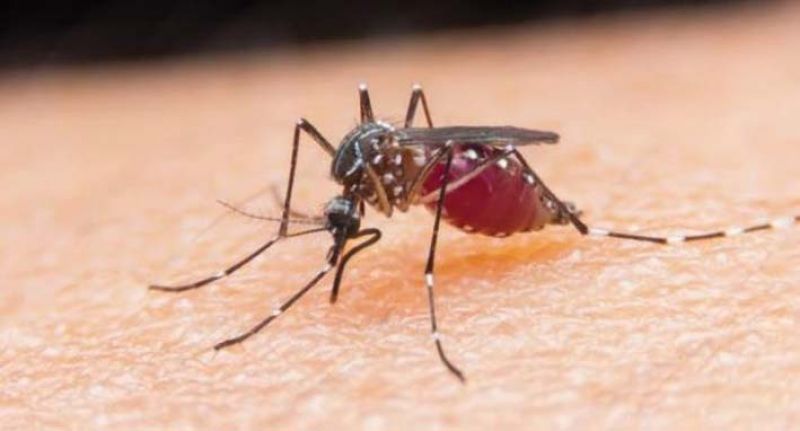The crisis of confidence: When Kerala shivered in fever
Macabre cycle of fevers, especially dengue, claims lives in State known for its high health indices. Why have we frittered opportunities?

2017 was scary in that there was a shocking decadence of all that was valued in popular perception. It felt like an epidemic of degeneration. It was not just the political class or the bureaucracy, even journalism plumbed new depths. Cinema lost its innocence, its make-believe terror turned real. Viral infections and cyclonic winds were allowed a free run. In such a dystopia of sorts it was only natural that principles that defined us as a civilised community were lost to bigotry. The fall of the political class we had learned to live with, but then the magnitude and sweep of their perversion in 2017 was startling.
Five years ago, Dr. Margaret Chan, Director General of World Health Organization, stated while presenting the Global Strategy for Dengue Prevention and Control that “in just the past decade, the significance of dengue as a threat to health and a burden on health services and economies has increased substantially. Compared with the situation 50 years ago, the worldwide incidence of dengue has risen 30-fold.”
WHO proposed a Global Strategy for this global threat, but unfortunately the incidence of dengue and other vector-borne diseases has been increasing despite the warnings and strategic actions of international health organizations and regional governments. In India, this year 87,000 dengue cases were reported. Of this, the highest number was reported from Kerala (18,900 cases). Southern states-Kerala, Karnataka & Tamil Nadu- have been the worst hit. West Bengal and Delhi were also severely affected by dengue.
 Silly bite of the mosquito has upset our prestigious history of pioneering one of the best public health systems in the third world.
Silly bite of the mosquito has upset our prestigious history of pioneering one of the best public health systems in the third world.
The National Vector-borne Disease Control Programme failed miserably. All tiers of governance having constitutional responsibility in providing healthcare to citizens are blinking at each other. In Kerala, we have a great history of proactive health campaigns, right from the days of princely statehood, both in Travancore and Cochin. We have the great tradition of eradicating small pox, TB, polio and other communicable diseases. Our healthcare system has been gearing up to prevent and manage non-communicable diseases like diabetes, cancer, and heart attack. But, the silly bite of the mosquito has upset our prestigious history of pioneering one of the best public health systems in the third world.
Official statistics relating to fever cases and deaths are too conservative. On the ground, approximately one-fourth of the population has had one or other issue due to the fever outbreak. Kerala’s public health system has failed and tripped from the high notches of health standards. In the New Year, Kerala can strive again to regain its lost glory, guided by WHO principles of “harmonizing prevention, entomological and epidemiological surveillance, and case management with existing health systems, ensuring that efforts are coherent, sustainable, cost-effective and ecologically sound.”
The mere narration of the problem makes no solution. The recent experience of the Public Health Protection Council, chaired by Perumbadavam Sreedharan, is a silver line. The council conducted a survey in Akkulam ward of Thiruvananthapuram Corporation for assessing the vector population under the leadership of Dr Sajith Kumar R, head of the Department of Infectious Diseases, Government Medical College, Kottayam. Mosquito indices in the selected area were explosive. The Breteau index (number of positive containers per 100 houses inspected) was 96. Any value above 50 is considered extremely serious.
But the council, with the help of ward councillor Sini, former councillor Suresh and other social workers, sprayed the ecologically sound and sustainable bio-control agent, Bacillus thuringienis (Berliner). Spraying of these bacteria in a very low concentration (2.5 g in 10 litres of water) could reduce the index from 96 to 56.
This shows that simple effective methods of vector control are available. Kerala has ward-level Health Sanitation and Nutrition Committees across the state. It has been integrated with the gram panchayats and the municipal local governments and chaired by the elected ward member with the supervision of the Primary Health Centre.
Vector control is one of the primary duties of this committee. Government has instructed organizing ward-level office called “Sevagram,” but a good number of panchayats have not yet established it. With firm political will and some governance skill, Kerala can eradicate the mosquito menace within a few months. Both in US (Florida) and Cuba, the administration could practically eradicate the vector. Unfortunately, our government has been responding to the fever outbreaks in a reactive mode. It has to be proactive. The first weeks of January are very important in vector control in the tropical monsoon-hit areas like Kerala. We have no time to lose. May this be our New Year pledge. Let us regain the glory of our public health.

